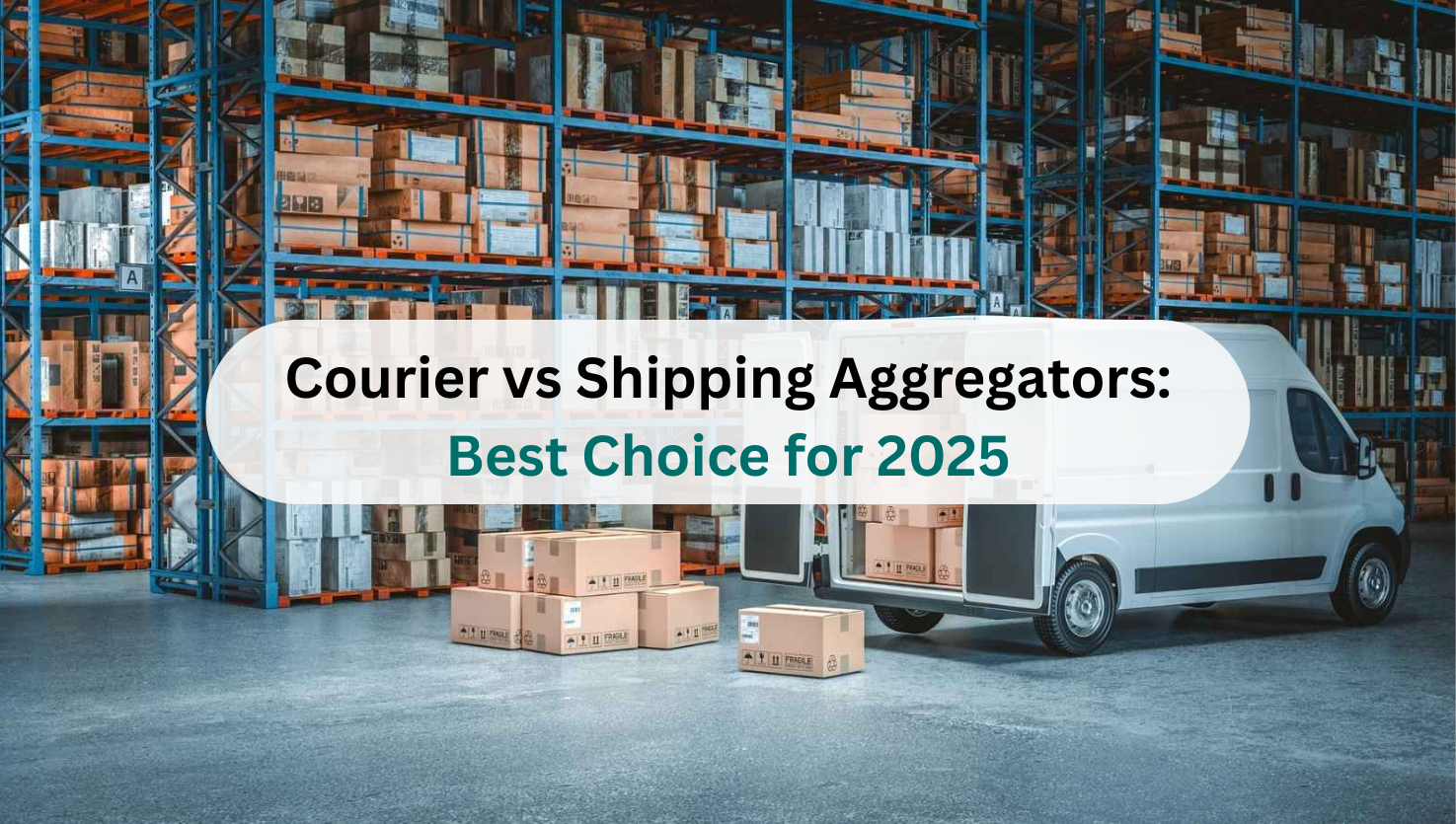Did you know? In India’s ecommerce market, shipping costs can eat up 10- 15% of total revenue for growing brands. The choice between using an aggregator account or signing your own courier contracts has become one of the most important logistics decisions in 2025. With rising order volumes, stricter customer expectations, and competitive delivery timelines, the way you structure courier partnerships can directly impact both your margins and customer experience. So, which option works better, fast-to-start aggregator accounts or long-term courier contracts? Let’s break it down.
What Are Own Courier Contracts?
A direct courier contract means you negotiate and maintain a business relationship directly with the courier company (e.g., Delhivery, Blue Dart, XpressBees, DTDC).
- Rates are customized based on your shipping volumes, lanes, and weight brackets.
- You can secure credit periods (weekly/bi-weekly billing).
- You gain flexibility with pickup schedules, SLA guarantees, and return management terms.
- You deal directly with courier support for escalations.
What is an Aggregator Account?
An aggregator account is the simplest way to start shipping. Instead of dealing with couriers directly, you sign up with a logistics platform that already has contracts in place. This means you can start shipping almost instantly, using pre-negotiated rates and ready-made setups. It’s a quick, no-hassle option that works best for small sellers, new D2C brands, or anyone just testing the waters in ecommerce.
- Instead of negotiating directly with courier companies, you simply sign up through an aggregator’s platform and start shipping almost instantly. The shipping rates you pay are pre-decided under the aggregator’s master contract, meaning you don’t have to go back and forth over terms or pricing, but you also don’t get much say in customizing them.
- Payments under aggregator accounts are usually prepaid or pay-as-you-go, which makes them hassle-free for smaller businesses that don’t want the burden of credit cycles or invoicing. For a small seller, this works like topping up a wallet and paying for shipments as you go.
- This setup is particularly suited for startups, D2C brands in their early stages, or businesses testing the waters with low shipping volumes. It removes the complexity of contracts and negotiations, letting you focus on growing sales rather than managing courier relationships.
In 2025, aggregator accounts are especially popular among micro-sellers on marketplaces and new D2C brands because they provide speed to market, you can go live with deliveries in just a day or two. The trade-off, however, is limited flexibility in areas like rate negotiation, service-level agreements, or return management.
Aggregator Account vs Own Courier Contract
In 2025, shipping isn’t just about sending parcels, it’s about choosing the right setup. Should you rely on a quick aggregator account or build your own courier contracts?
| Factor | Aggregator Account | Own Courier Contract |
| Setup Speed | Instant signup via aggregator | Requires negotiation & courier approval |
| Rates | Fixed, higher (shared with many sellers) | Negotiated, lower per shipment |
| Flexibility | Limited (fixed slabs & policies) | Custom weight slabs, special handling |
| SLA & Support | Standard aggregator support | Direct courier account manager |
| Payment Terms | Prepaid / Pay-as-you-go | Credit billing cycles (weekly/bi-weekly) |
| Returns | Managed under aggregator terms | Negotiable return handling & costs |
| Best For | Startups, small sellers, low volume | Mid/large businesses, scaling D2C, retail |
Why Courier Choices Matter for Indian Businesses
In 2025, the way Indian businesses choose between Aggregator Account accounts and direct courier contracts has become more than an operational decision, it’s a strategic one.Rising Order Volumes
India’s ecommerce market is growing fast and is expected to cross USD 200 billion by 2026. A lot of this growth is coming from Tier 2 and Tier 3 cities, where more people are now shopping online. As your order volumes increase, the way you ship starts to matter more. With higher shipments, having your own courier contracts makes sense because you can get better deals and more reliable service compared to standard aggregator accounts.Cost Pressures
For most D2C brands, shipping is the second biggest expense after marketing. If you’re using an aggregator account, you’re paying standard rates that are usually higher. But with your own courier contract, you can negotiate 10–25% lower rates. Over time, this adds up to big savings and helps you use that money for things like customer acquisition or product growth. Customer Expectations Customers today don’t just want fast delivery, they expect it. Same-day or next-day delivery is quickly becoming the norm. With aggregator accounts, you don’t have much control over how quickly your orders are picked up or moved. With direct contracts, you can negotiate priority pickups and faster delivery commitments, which helps you keep up with customer expectations and build trust.Returns & RTO Management
Returns are a big part of ecommerce in India, with 20–30% of orders being returned or sent back. With aggregatoraccounts, you have to follow whatever return rules the aggregator has set, which can be costly and restrictive. Having your own courier contracts gives you more freedom, you can decide how returns are handled, negotiate better rates, and even arrange quicker reverse pickups. This makes returns less painful for both you and your customers. For growing D2C brands, retailers, and ecommerce sellers in India, courier partnerships directly impact costs, delivery speed, and customer loyalty, making the right choice essential for long-term success.Which One Should You Choose?
There’s no one-size-fits-all answer, it depends on your stage of growth.- If you’re a small seller or testing new markets – Start with an aggregator account. It’s quick, easy, and low-risk.
- If you’re scaling or handling consistent volumes – Move towards direct contracts. They give you control over costs, timelines, and customer promises.

